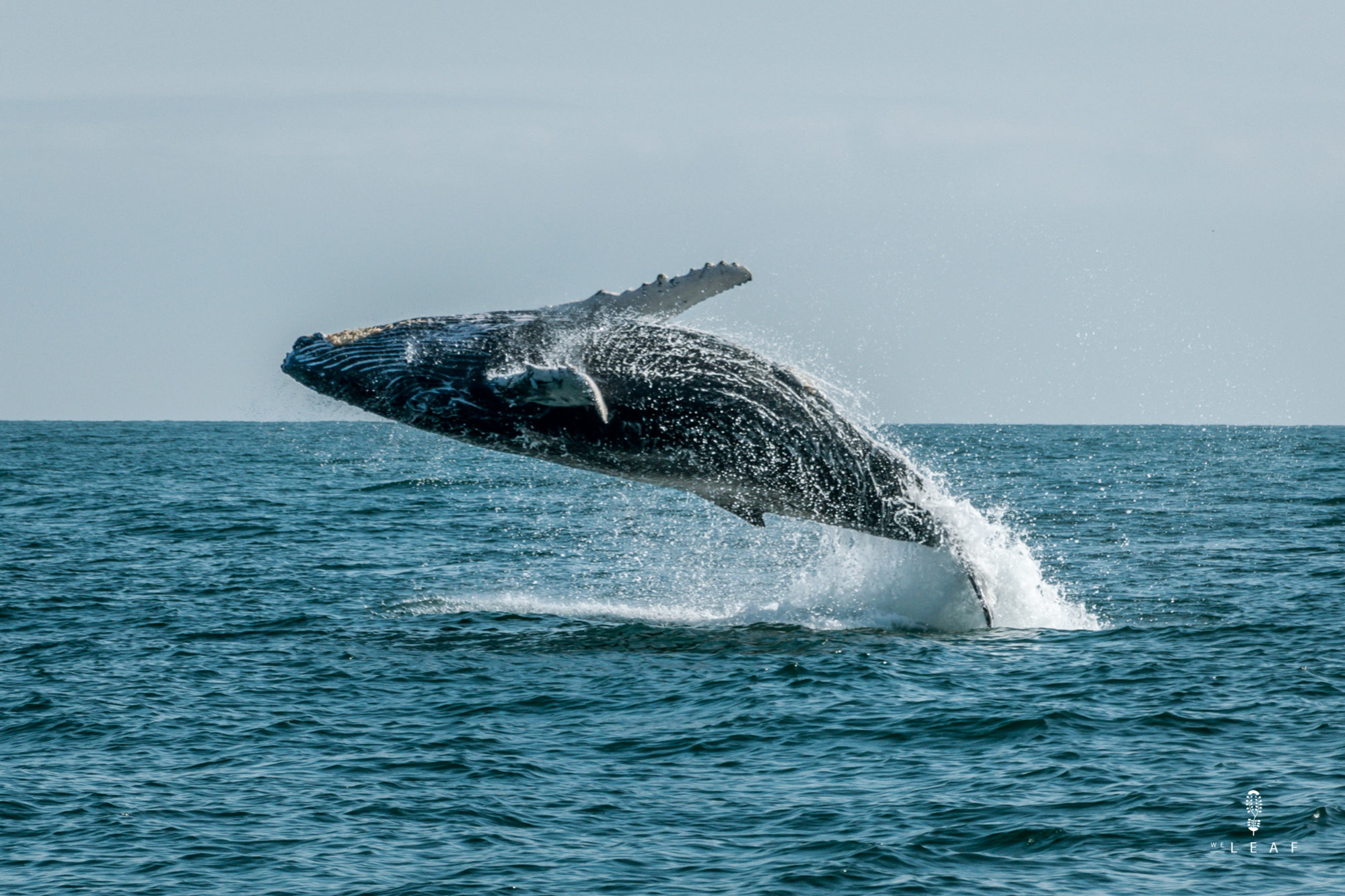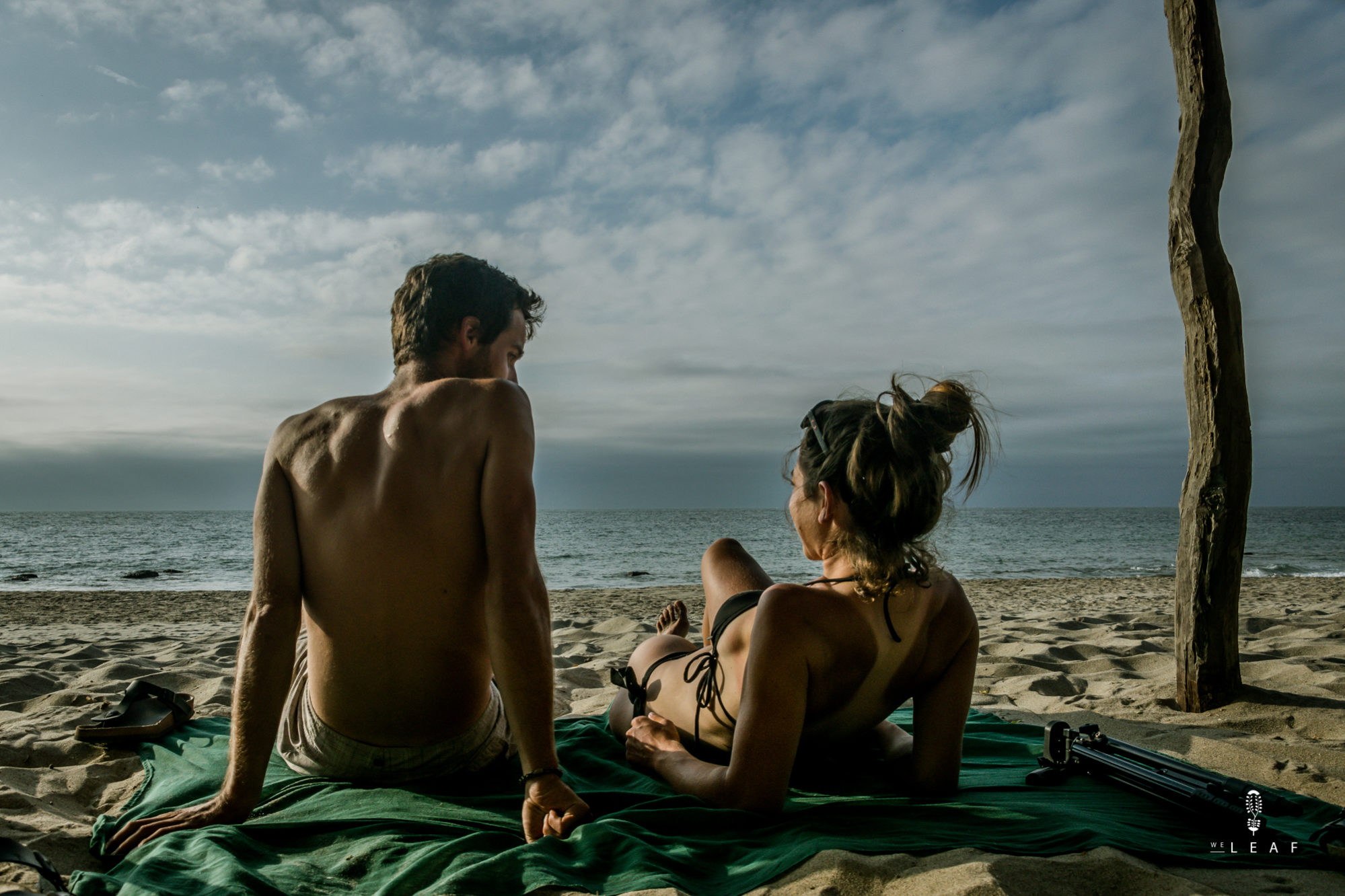
Everything changes

Cycling in Peru
September 22, 2018
Green grass on the other side
October 18, 2018
Monday 27th of August - Olmos
For more than three months we have been over 2,000 meters above sea level. Our body is fully adapted and has not any problems with a mountain pass above 3,000 meters. The last days in Peru we leave the altitude and lower until the coast. In no time we drop 2,000 vertical meters and return to sea level. Suddenly everything changes.
There are no mountains around us and the roads are straight. The rough mountain slopes with potato fields make way for banana plantations and fields full of passion fruits. We don't see the bowler hats and large skirts anymore. Everyone walks in slippers and short skirts. The coast people are fatter than in the mountains, since the cold and activity keeps the body healthy there. Here people sit in the shade with a bottle of beer, an ice cream or an extremely sweet local soft drink. Folklore mountain music turns into tropical reggaeton and cumbia, two popular music styles. In the restaurants it is not chicken, but fish for lunch. The most famous fish dish in Peru is called Ceviche, a spicy fish soup in which the fish is cooked in lime juice. At night the temperature doesn't drop below twenty degrees, so we don't need a sleeping bag in the tent. The mosquitoes return and a cold shower is not longer a problem. On the contrary, its very refreshing. Although we are in the southern hemisphere, people call it summer. The seasons here are not astrological, but depending on the rain. The rainy season, in January and February, is the winter.
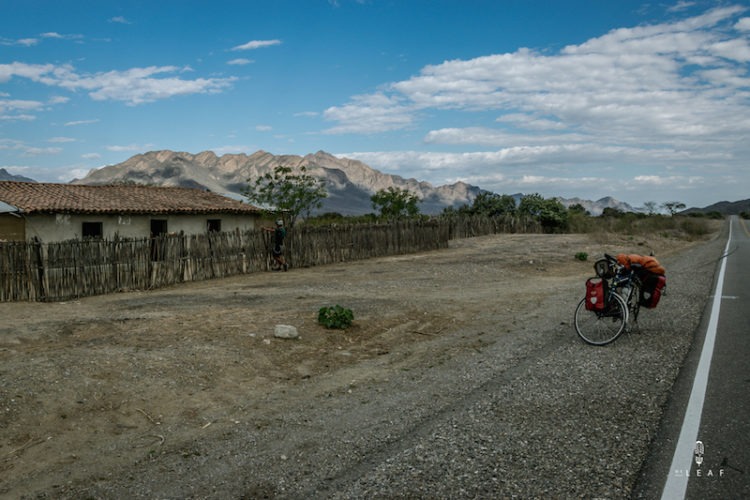
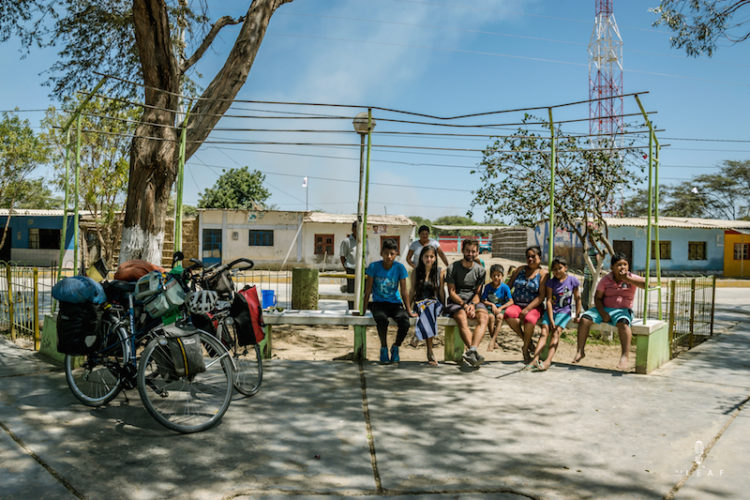
It is a pleasant change after so much time at altitude. The altitude training of three months clearly shows its effect. We cycle 130 kilometers without much difficulty and after a long search we find a gate in the kilometer-long fence. "These two gringos want to set up their tent," one man says to the other. They have to think for a moment, but soon point to a spot under a tree. A curious woman from the community comes to say 'hi'. A few minutes later she returns with two white garden chairs. She promises to come back later for a chat, but first has to find her goats. It is dry and her goats have to go far to find some food. In the morning she passes by and apologizes. "I could not find my goats," she says. 'Where do you come from?' she asks. It is the most frequently asked question in Peru. 'Belgica y Holanda' we say, after which people wonder in which province of Peru its located. They have heard of Europe, but they do not know what the world map looks like. They nod wholeheartedly when we talk about our journey, although they probably don't understand it. That we go to Ecuador, they do understand, but whether its Colombia or Chile above Ecuador, is too much of a question. Sometimes we are surprised about the knowledge in Peru. We meet people that can't read and write. Many conversations remain limited to everything that people know from their immediate environment.
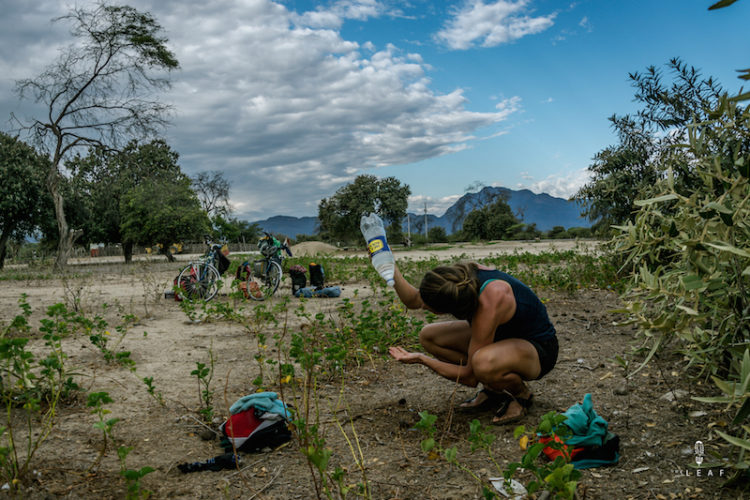
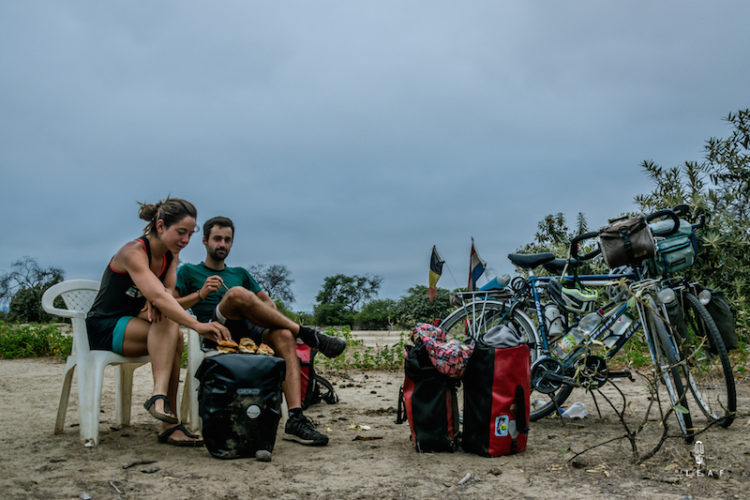
We cycle the last part of Peru along the coast. We imagine a nice coastal route like we had in Brazil, with white beaches and palm trees. The reality is slightly different. We cycle through a brown desert landscape with infinite pumpjacks, sandstorms and withered bushes. There is no ocean view at all. Much earlier this trip we learned that it is better not to have any expectations, because often they disappoint. Because we did not see the sea for half a year, we turned out dreaming too much, thinking of postcard sceneries. It is a frustrating day and for the first time in a long time we are arguing with each other. The body is tired and we are ready for a rest after 3,000 kilometers through the mountains. Fortunately, paradise is at the doorstep.
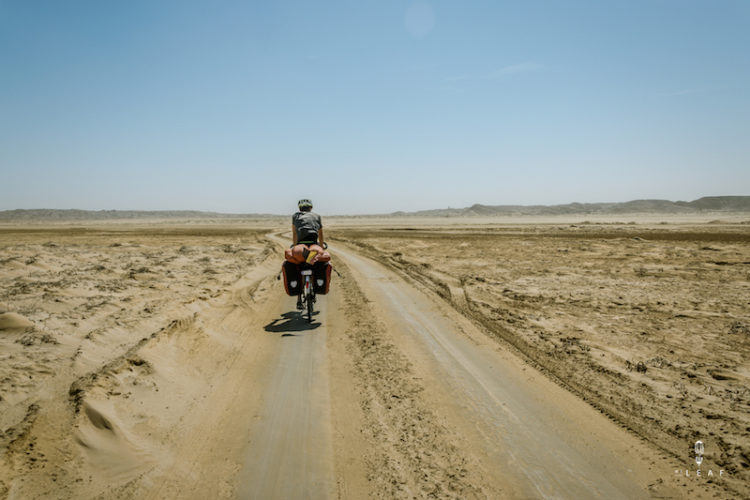
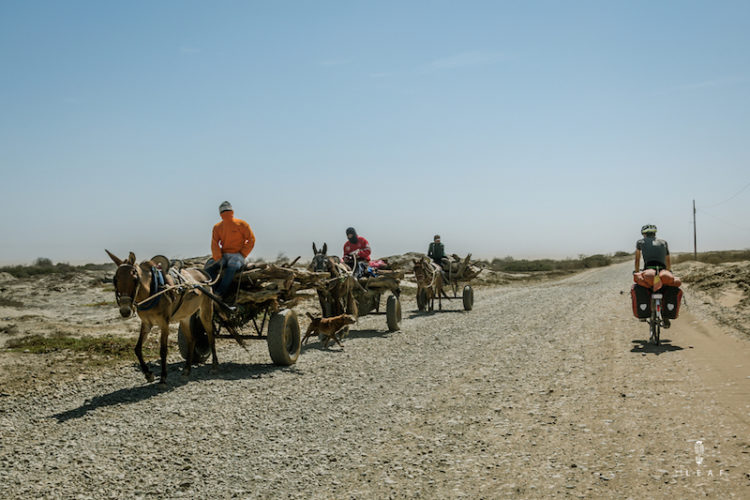
The expected palm trees and white beaches welcome us the next day. Thanks to Pedro, whom met Ellen on his way to Lima and who helped us with a new rim. We can stay for a few days in the beach hotel of his brother. Our bread is buttered on both sides. We may recover in a luxury that contrasts sharply with the nights in the tent and cheap hostels we are used at. We eat fresh fish, sleep with the sound of the waves and roll into the sea every morning. There is no plastic bag on the beach, no hair in the food and the honking cars do not disturb the night's rest. A nice bed, a shower and healthy food for a few days are enough to recharge the batteries.
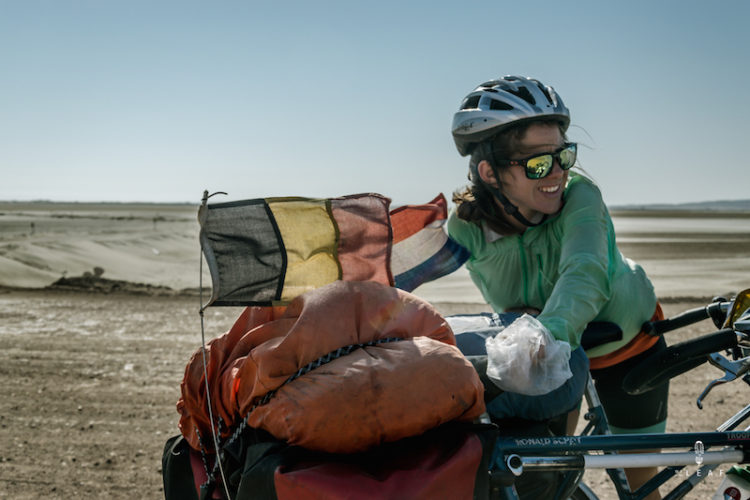
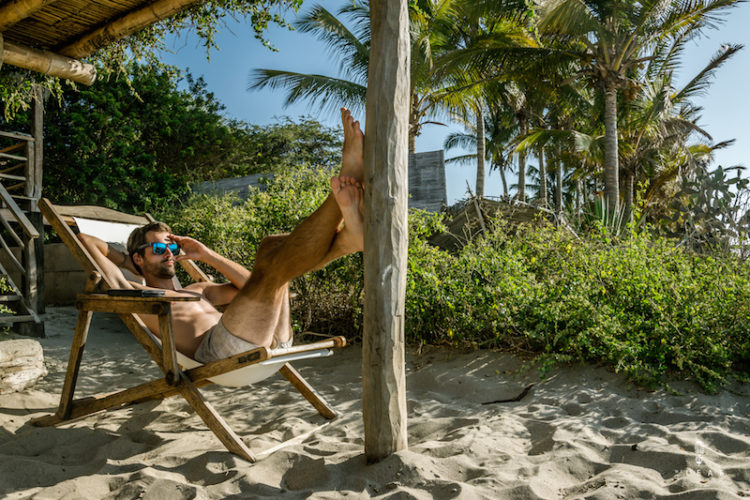
Mancora is the perfect end of our three month stay in Peru. There are 130 kilometers left to the border with Ecuador. With a little back wind, we cycle the distance in one day. Once at the boarder, the grass is greener on the other side. Litteraly, on the other side everything is green, there are thousands of banana trees and there is a two-lane highway. If the grass will be greener figuratively, we will have to find out. One thing is for sure, suddenly everything changes again.
